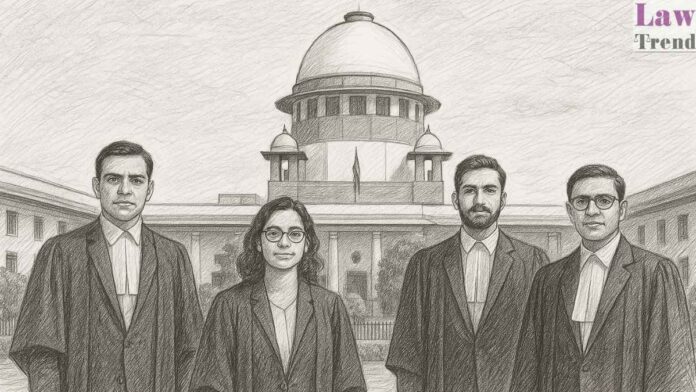The Supreme Court on Wednesday came down heavily on the emerging practice of advocates withdrawing from cases after being designated as Senior Advocates, terming the conduct “absolutely unethical” and a disturbing new trend within the apex court.
The Bench of Justice Ahsanuddin Amanullah and Justice SVN Bhatti made the sharp observation during the hearing of Biswanath Kundu v. State through C.B.I, when a matter was called out and no counsel appeared on behalf of the appellant.
Upon inquiry, a lawyer present in court — though not appearing in the matter — informed the bench that the Advocate-on-Record (AoR) for the petitioner had recently been designated as a Senior Advocate.
Taking serious note, Justice Amanullah criticised the practice where lawyers, after achieving the distinction of being designated seniors, stop appearing in cases they had earlier committed to. “This is a very new trend, and I think it is unethical on the part of the Bar. If somebody becomes a Senior Advocate, should they abandon the case? They should now assist as seniors. They have taken responsibility. Absolutely unethical practice,” he remarked.
Justice Amanullah also pointed out that such disengagement appears to be specific to the Supreme Court. “In this Court, I have seen this — and in no other Court,” he observed.
Recollecting his own experience, Justice Amanullah said he had once obtained special permission, including governmental approval, to continue appearing in a matter after being designated as a Senior Advocate. “Very unethical practices in the Supreme Court,” he said, referring to the growing tendency of disengagement without proper transition or client notification.
Adding to the concerns, another counsel in court observed that it is the responsibility of the Advocate-on-Record to inform the client, coordinate the legal representation, and ensure a smooth procedural handover if unable to continue in the case. “It is the duty of the counsel who was advocate-on-record to inform the client, coordinate with him, and get the AOR changed,” the lawyer said.
Justice Amanullah concurred but reiterated the Court’s disapproval of the growing lack of accountability. “Just convey to the counsel that the Court has taken strong sentiment to such a conduct,” he directed the lawyers present.




